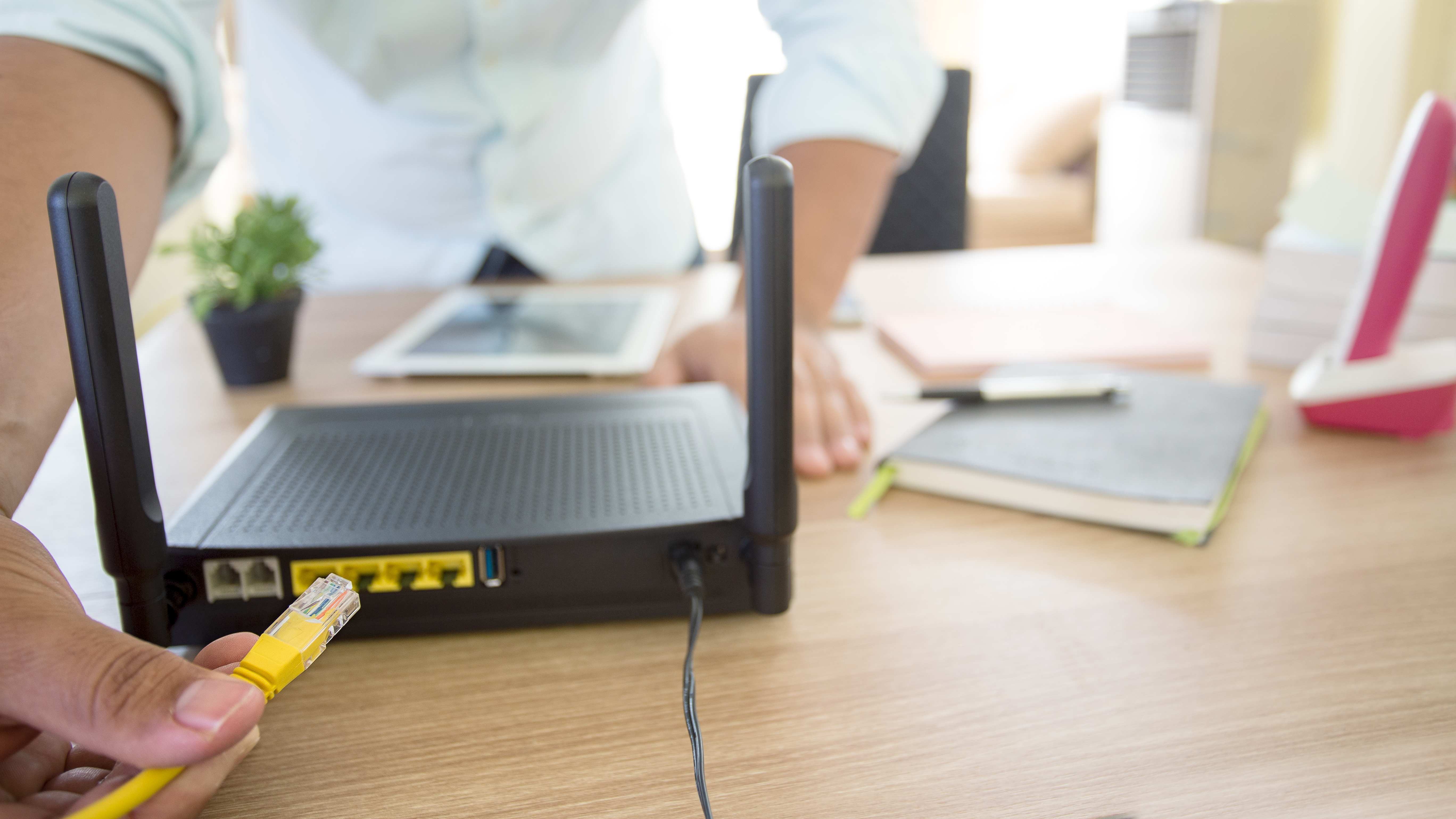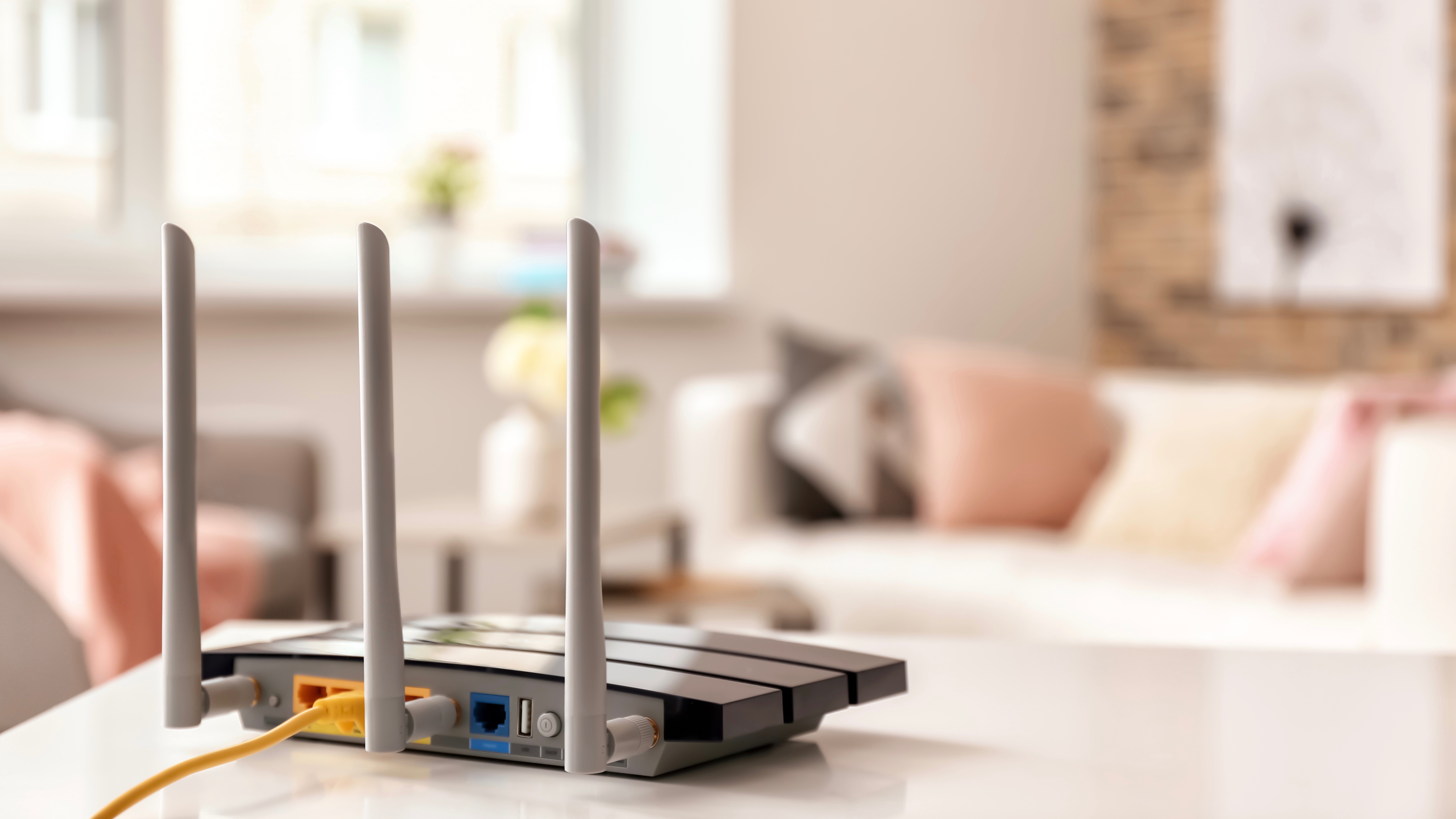What broadband speed do I need? Fibre, ADSL, Ultrafast and more compared
Get broadband that is fast enough for your needs

Getting the best broadband deal isn't always about grabbing the fastest speeds available. Instead, it's about getting the right deal for you at the lowest possible price.
After all, the fastest packages available may not be the best for you. This is because, if you don't use the ultrafast speeds these packages offer, then it's likely you'll end up paying far more for your internet connection than you need to.
So, which broadband speeds do you actually need? Well, we're here to help you make an informed choice. In this guide we've broken down the different broadband types, in speed order, so you can assess which is the best option for you.
What broadband speed do I need?
ADSL broadband
ADSL broadband is the slowest type of broadband available, offering average download speeds of 10-12Mbps.
ADSL connections used to be incredibly popular. However, many providers are now removing these deals from the market.
This is because ADSL deals are incompatible with the needs of a modern household. For example, if you have an ADSL connection, you'll be unable to stream in UHD and you may struggle to attend work calls without any buffering.
Added to this, your problems will be much worse if you want to connect multiple devices simultaneously. If you have lots of people using different devices at once, you're going to be limited by the broadband speed coming in, which then gets split. In this scenario, you may not be able to get online at all.
That said, in some remote and rural locations, ADSL broadband is the only option available. But, if you live in an area where you can choose between an ADSL package or a fibre deal, it's almost always better to choose fibre because it'll allow you to do a lot more a lot quicker. Plus, because providers are removing ADSL deals from the market, they're incentivising people to switch and many basic fibre packages now cost the same as ADSL deals.
Fibre broadband
Fibre broadband deals usually provide average download speeds of around 30Mbps. They achieve this by using fibre optic cables for part of the journey. This allows for a speedier and more reliable internet connection.
Basic fibre packages (also known as FTTC packages) like these are incredibly popular. This is because they're quick enough to allow most people to stream in UHD, attend work video calls or game online without the high price tags associated with premium packages.
As an added bonus, Openreach estimates that these deals are already available at 97 per cent of UK properties.
However, a package like this is likely to struggle in a large house, or in a home that has more than four people who like to be online at the same time. Plus, because these packages still rely on copper cables for part of the journey, they are seen as being outdated. Finally, if you live in an area where Full Fibre is available, you may not be able to access a basic fibre package like this.

Fast fibre broadband
It's also possible to purchase fast fibre/upgraded fibre packages. These are similar to the basic fibre packages above, but they provide faster average download speeds of 60-80Mbps.
For busy families, connections like this are ideal because they provide download speeds that are quick enough for high-response rate gaming, working from home and UHD video streaming.
Crucially, these connections also allow busy households to perform these actions simultaneously. For example, one child can be watching a high-quality TV stream while another games online and the parents listen to music on the smart speaker.
In particular, these packages are also popular with people who work from home, as there's no need to worry about buffering or lag even if other family members are also online.
Full Fibre broadband
Live in a particularly busy, big or connected household? Well, Full Fibre broadband may be the best option for you.
A Full Fibre connection (also known as an FTTP connection) uses fibre optic cables throughout the entirety of the connection. This means that you get rapid download speeds of 100Mbps+ as well as increased reliability.
At present, there's a Full Fibre rollout underway in the UK. Although the technology is far from universally available, Openreach plans to provide it to 25 million homes and businesses by 2026. As of March 2024, it's thought that around 57% of residential premises can access Full Fibre connections.
So, if you have more than five people at your address, want 4K videos and ultra-responsive high-quality gaming, smart devices, home office work and more, all running at the same time – this could be worth paying the premium for.
Is there anything faster than Full Fibre?
Amazingly, yes. This is because a number of providers now offer Gigabit-capable internet packages.
For example, EE's Busiest Home bundle provides average download speeds of 1.6Gbps, while Virgin Media has just announced a 2Gbps symmetric broadband service. Added to this, several local providers with limited availability can offer speeds that are even faster than this!
In reality, unless you're a professional gamer, live in an incredibly connected household or you're looking to future proof your connection, you likely won't need a package that's this quick.
However, if you're completely reliant on a super fast internet connection and you don't mind paying a premium for the service, then a gigabit-capable package could be a good choice for you.
What other types of internet are available?
On top of everything we've mentioned above, there are a couple of other types of broadband available in the UK. These are:
- Cable broadband - this is used by Virgin Media and can provide speeds of up to 2Gbps
- Satellite broadband - this is used by StarLink and OneWeb and can provide speeds of up to 500Mbps
- 4G broadband - this can provide speeds of up to 150Mbps
- 5G broadband - this can provide speeds of up to 500Mbps
What is the best option for most people?
For the large majority of people, either a fibre or an upgraded fibre package will be the best choice. After all, ADSL packages are now being removed from the market (and may be too slow anyway) and gigabit-capable packages are usually too expensive and unnecessary.
If you choose a basic fibre or a fast fibre package, then you'll likely pay £25 to £35 per month for your internet connection, depending on the provider and the exact package you choose.
These speeds will be fast enough if you're working from home, gaming or just generally running a host of devices off your Wi-Fi network. However, if you're looking to run a business from home or you have an intensive job that involves big downloads or exports, it's worth considering whether it's worth paying slightly more for Full Fibre. A package like this will likely cost you closer to £40 per month, but will provide you with more certainty about the quality of the connection and will likely also boost your productivity.
Find the perfect package today
Armed with this new information, you can find the best package for your needs at a price that suits you. To do this, simply pop your postcode into the widget below. We'll then show you all of the best broadband deals that are available in your area.
Get daily insight, inspiration and deals in your inbox
Sign up for breaking news, reviews, opinion, top tech deals, and more.
Luke is a freelance writer and editor with over two decades of experience covering tech, science and health. Among many others he writes across Future titles covering health tech, software and apps, VPNs, TV, audio, smart home, antivirus, broadband, smartphones, cars and plenty more. He also likes to climb mountains, swim outside and contort his body into silly positions while breathing as calmly as possible.
